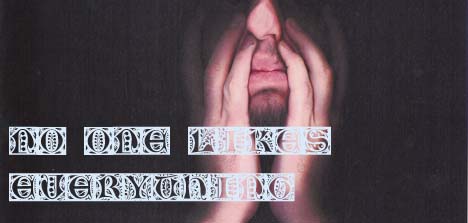Greg Afinogenov talks about "topographies" versus "biographies" in this blog post, including the following line:
"Though there may be several ways to understand this or that historical figure, the topographer must commit to choosing one interpretation."
In topographer, he's talking about people who write histories of place (at least, I think he is), and Greg's relying on a post-modern (instability of facts) framework to pose his assumption.
But must this be true? Certainly, given an apatite for abstraction, where each option for transience can be met: the author commits to a single interpretation even if that interpretation includes multiple nested interpretations; no matter the depth a deconstructed text is still a text. Even if that text changes, there's a limit to what can be perceived by the audience, etc.
There is, however, no need to restrict this to topographers (a term I like regarding with expansiveness perhaps because I am not a topographer). Those same restrictions are necessary for biographers—even an imagined biographer who tells the story of a life by reliving that life would be necessarily tied to any one given interpretation at any one given time, especially if meta counts.
Which brings me to a challenge: I would like to see stories of place that encompass multiple sets of facts, as much as is possible. I would assume that this is best handled by multimedia, as different media necessarily imply different perspectives due to material constraints. I would assume that this would be parallel and dynamic, making the restrictions on sets of facts more incumbent upon the practical realities of the audience rather than the work itself—it should be impossible to see all of it at once (tangent: unfair art?). To ideally detach itself as much as possible from a single set of facts, it should invite interaction and mutation.
Perhaps selfishly, I'd think this would be best set in Los Angeles, both because I'm here and because it is a city diffidently aware of the difference between portrayal and reality, and one that (even as it exports them) eschews easy narrativization.

2 comments:
Sorry, I just got to a computer. This is a good point; for an example of how this might be done, see Bruno Latour's Paris ville invisible, which is online somewhere.
I, like Fielding, rely on the postmodern assumption because I think it's pretty much non-negotiable. I'd be interested to hear if you've got other ideas.
Oh yeah, I posted the Latour thing on MeFi.
Post a Comment